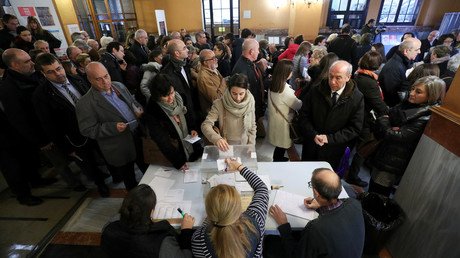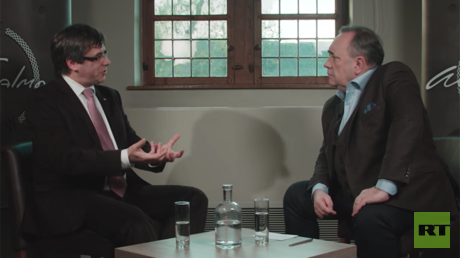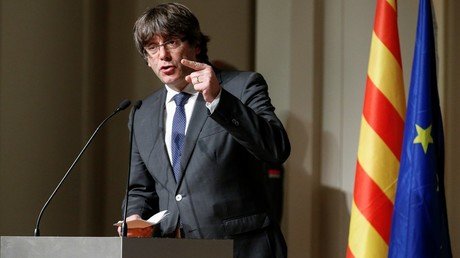Catalan secessionist parties secure absolute majority in snap vote
Pro-independence parties have again secured an absolute majority in the Catalan parliament, with former regional leader Carles Puigdemont poised to regain the power he had been stripped of by Madrid.
With over 99.5 percent of the votes counted, the trio of pro-independence parties: the Together for Catalonia (JxCat), headed by deposed regional president Puigdemont, the Esquerra Republicana (ERC) and the Popular Unity Candidacy (CUP) are likely to secure 70 parliamentary seats collectively, with 68 required for an absolute majority in the 135-seat assembly.
Although the Citizens Party won the election by a small margin in terms of vote share, it will only pick up 37 seats, and unlikely to form a unionist majority.
READ MORE: Hungry for independence? Pollster bypasses Catalan election ban by using food survey
While the preliminary results signal a likely victory for the secessionists, it shows a great rift among Catalans on the question of independence. The unionist and pro-independence parties are only separated by a couple percent of votes.
The snap elections were called by Spanish Prime Minister Mariano Rajoy in October, in the aftermath of the independence referendum deemed illegal by Madrid. The October 1 independence plebiscite was marred by a central government sanctioned police crackdown on voters.
Madrid tried to downplay the violence, claiming that media materials on the chaotic referendum, contained “fake pictures.” The actions of Madrid, however, were condemned by several international organizations, including Human Rights Watch.
The NGO analyzed photos and videos from the day pf the referendum and concluded they depicted “disproportionate use of force” against peaceful demonstrators “expressing their political opinion.”
Following the declaration of independence by the Catalan government late in October, Spain responded by suspending the region’s autonomy and dismissing its government. Several pro-independence politicians were jailed, while deposed president Puigdemont managed to flee to Brussels. He had said that he would return to Catalonia if he wins. His supporters, however, fear he might be arrested, since Madrid has accused the politician of inciting a rebellion and misusing public funds.















